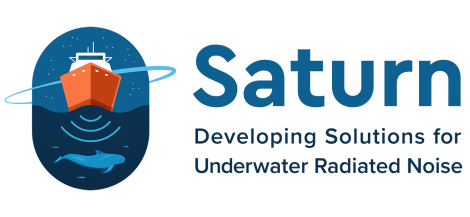
SATURN researchers have published a new open-access article in Science Advances
New research in the journal Science Advances shows that the impact of shipping noise on marine mammals can be greatly and immediately reduced by slowing ships down.
As coordinator of the SATURN project, MaREI’s Gerry Sutton and the whole project team are delighted to see this work being published as an important and informative output of the project. The findings that the investigative team have presented are significant on several levels…ie feeding into the current public upsurge in interest and understanding about underwater sound/noise; for regulators/competent authorities in terms of underscoring the value of slow-down/re-routing as measures to help curb harmful impacts e.g. in their regions of responsibility; for the shipping industry to increase awareness, understanding and incentivising opportunities to take pro-active measures themselves; and finally within the SATURN and wider scientific and maritime engineering communities as the findings have already cast fresh light on some of the more complex questions currently under debate.
Maritime shipping transports over 80% of international trade around the globe. As they move, ships emit continuous noise from their propellers and engines. Noise from ships is now the dominant source of human-made noise in marine environments with detrimental effects on marine wildlife. Marine mammals (whales, dolphins, porpoises, and seals), which use hearing to find food, detect predators and communicate, are especially vulnerable. Loud shipping noise has been shown to change marine mammal physiology and behaviour, and limit their ability to communicate with one another. Importantly, animals that are frequently exposed to ship noise can have less energy available for growth and reproduction resulting in fewer offspring.
The EU Horizon 2020 SATURN project is a collaborative effort bringing together experts in bioacoustics, maritime engineering, shipping, and other fields to develop solutions to the problem of underwater noise from shipping.
Read the open-access article here.
Read the focus summary here.
We show that the area around a ship exposed to #noise can be substantially reduced with moderate reductions in vessel source levels (the #loudness of the #ship). 🔊⬇️This means fewer #animals will be exposed to shipping noise! 🐳🐬🦭
🎨Illustration by @amydoz @MaREIcentre
(3/n) pic.twitter.com/er2wUX65Y5— Dr Charlotte Findlay (@chazz_findlay) June 22, 2023







